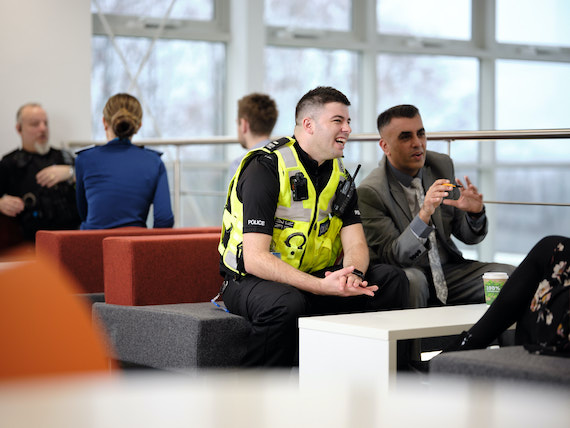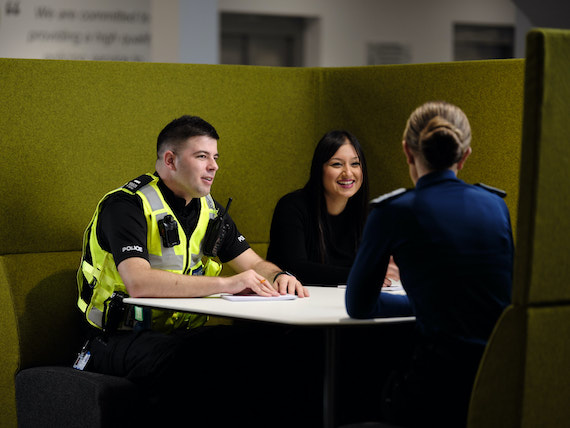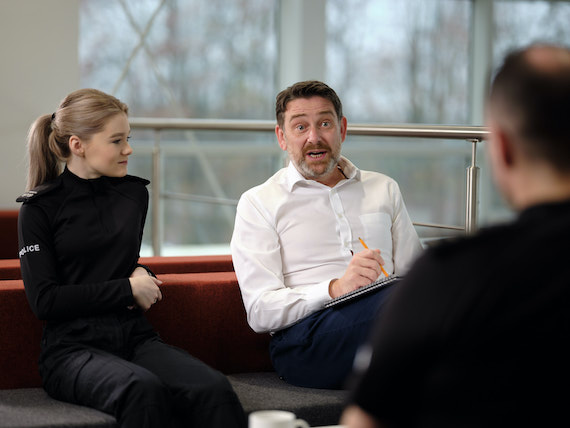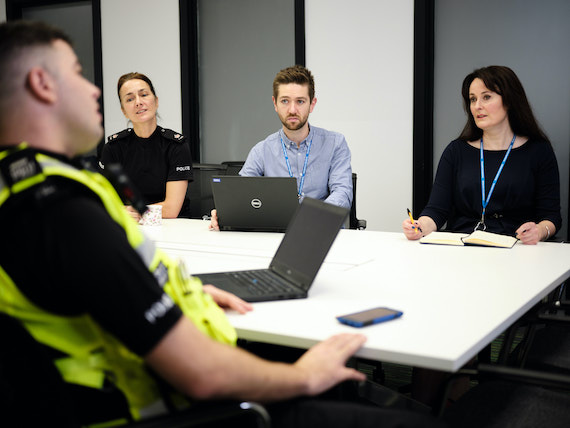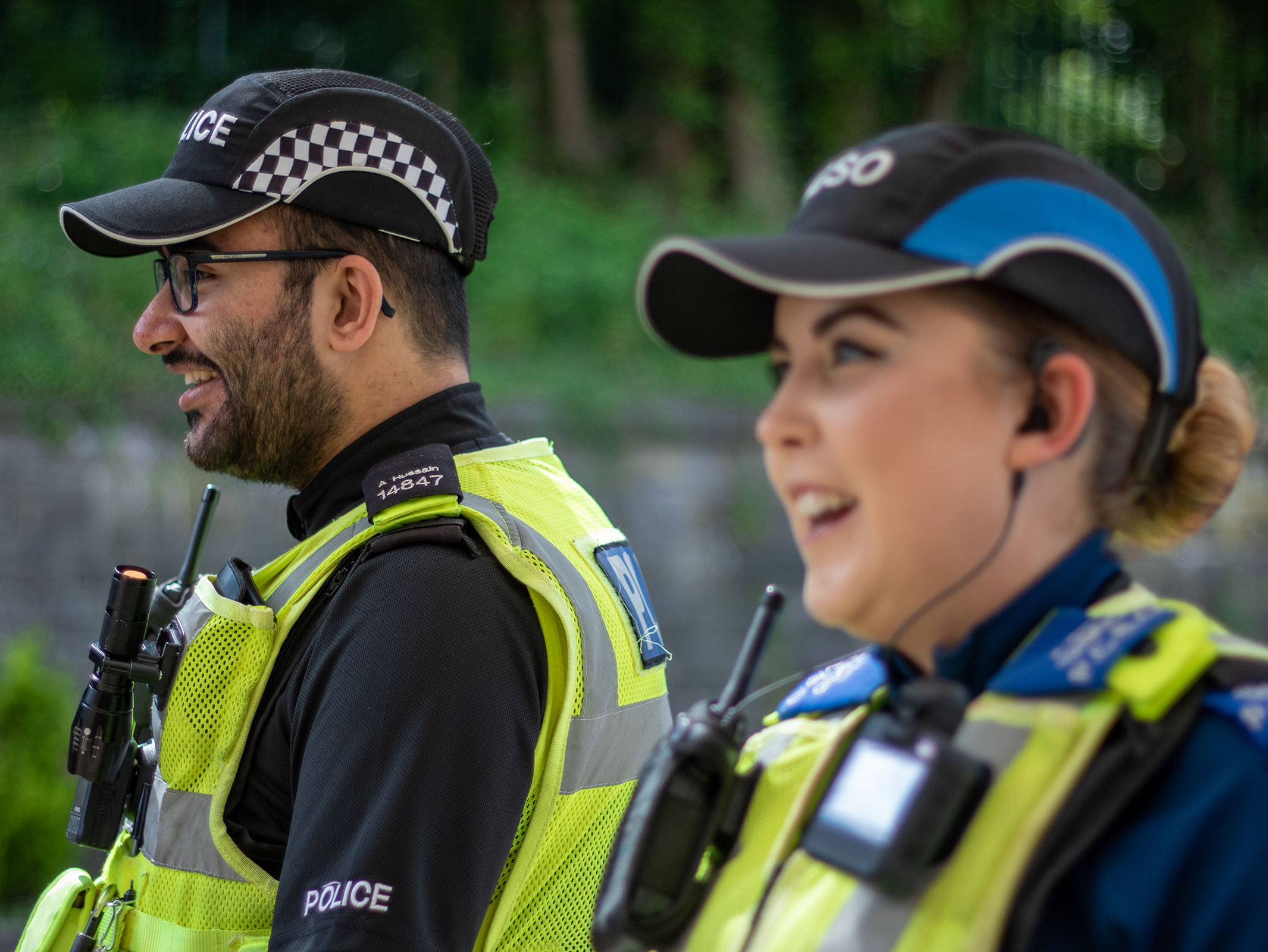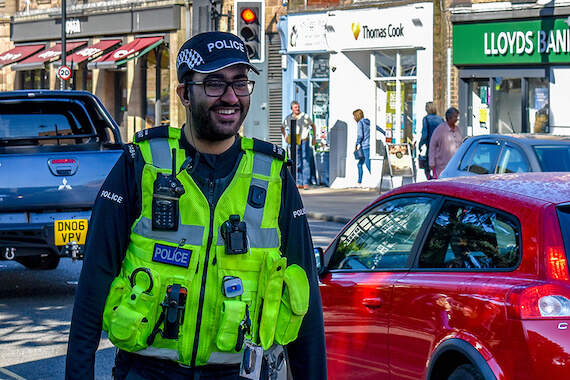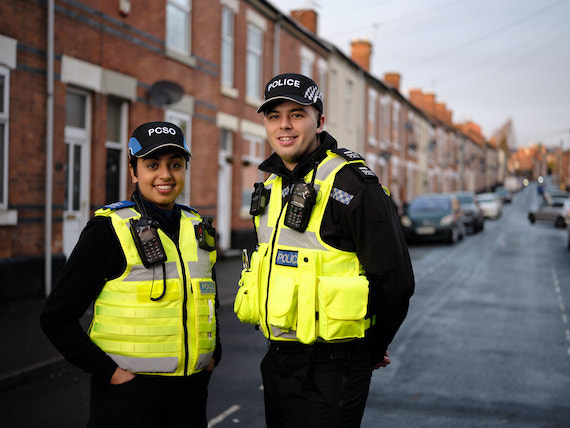
What you could be doing | Police Officers | Degree in Professional Policing
Degree in Professional Policing
Degree in Professional Policing (DIPP) Route
There are several routes into the force. This particular one is for individuals who would prefer to study first before becoming a police officer. Our Degree in Professional Policing (DIPP) programme enables you to do a three year degree in professional policing at a participating university at your own expense.
This route is a professional academic knowledge-based degree, based upon the national curriculum for the police constable role. Your probation period will be two years and at the end you will be signed off as a fully competent Police Officer.
How do I apply?
Applications are currently closed. They are due to reopen in Autumn 2022.
Express your interest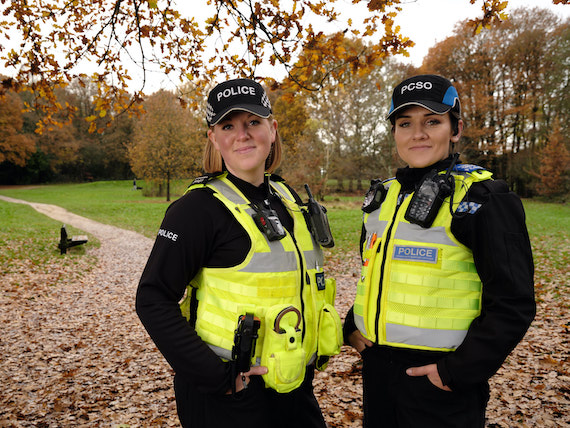
Is the role for you?
While being a police officer is physically, mentally and emotionally demanding, it’s also hugely varied and incredibly rewarding. Of course, it’s vital that you’re the right person for the job. This tool will help you to explore your suitability and make a reasonably informed decision about whether or not to apply.
Please note, this tool is a guide, not a definitive statement about your suitability.
What do you need?
All applicants must be a UK Citizen, EU Citizen with EU Settled Status, a Commonwealth Citizen or Foreign National with no restrictions on your stay in the United Kingdom. Whether or not you were born in the United Kingdom, you should have lived here for the three years immediately preceding your application.
You must also be between 17 and 57 years old on the date of submitting your application.
- Police Constable DHEP you must have a minimum of a UK bachelor’s degree qualification (Level 6) or equivalent in any subject.
-
Detective DHEP you must have a bachelor’s degree (or equivalent qualification) in Criminology, Law, Social Work, Psychology or related subjects. Or are you PIP2 qualified or working towards accreditation by 30 April 2022 and already hold a bachelor’s degree (level 6) in any subject.
-
PCDA you must hold a level 3 qualification or two A levels (or be in the final year of study) and a level 2 in Maths and English grade C/4 or above.
- Prejoin you must hold a Bachelor’s degree in Professional Policing accredited by the College of Policing by the following universities or in your final year of study.
You must hold a full UK/EU valid manual driving licence at the start of pre-employment checks.
You’ll need to pass a Job-Related Fitness Test (JRFT9) to check your fitness levels. This test determines whether you’re fit for the job and ready for Officer Safety Training, where you’ll learn to protect yourself and others. You’ll also be asked to take a running test (known as a multi-stage shuttle run or bleep test) to level 5:4.
Get yourself ready for the test with our useful guide.
You’ll need to undergo a medical assessment to make sure you’re healthy enough for the intense training. Your application will be rejected if you fail to meet the minimum acceptable medical standard for entry. Our Occupational Health Team will generally carry out the assessment. They’ll check:
Body Mass Index (BMI)
Eyesight
Colour vision
Lung function
Hearing
You’ll also be asked to complete a confidential medical history questionnaire. Depending on your medical history, we may have to contact your GP/specialist for further information. Once you have been declared medically fit, we’ll progress your application to the next stage.
You can check your Body Mass Index at www.nhs.uk or find out more about healthy eating at www.nhs.uk/change4life
You must declare any previous spent and unspent convictions and have a basic background check to get Security Check level clearance. Applicants with cautions, convictions or reprimands, other than some motoring offences, may not be accepted.
What may hold you back?
You cannot apply to become a police officer with us if you:
- Have had an application turned down by a police force in the last three months at any stage of the national process. The national process includes Online Assessment, fitness test and pre-employment checks.
- Have been or are a member of a group or extreme political organisation such as BNP, National Front or Combat 18 that stirs up racial hatred and violence, a proscribed terrorist organisation/group or a similar organisation.
- Are waiting to appear in court or have any serious convictions or recent cautions, bind-overs or findings of guilt.
- Misuse drugs, solvents or anabolic steroids. But each case is considered upon its own merits.
- Have tattoos on your face, neck or hands that could cause offence. If you have a tattoo, you’ll be asked to provide a description and photographs of the tattoo. The nature, location, size, prominence and appearance of tattoos will be considered. They must be in line with the College of Policing’s Code of Ethics and Standards of professional behaviour
- Have any current County Court Judgements (CCJs) against you, or are the subject of an Individual Voluntary Agreement (IVA). If you’ve been registered bankrupt, you may only apply if it is at least three years since the date your debts were discharged.
What we can offer you
Meet some of the team
Stefan Bancroft, Police Constable
I always wanted to be a police officer. My grandfather was also a part of Derbyshire Constabulary, so joining felt right. I’m part of the newly formed Police Constable Degree Apprenticeship. The Constabulary funds the degree, so there’s no student loan to worry about. What’s more, the extra input I receive from the trainers means I regularly get opportunities to further develop professionally.
There’s a really supportive structure in place too. It feels like an extended family. I’ve not been here long so the whole environment is fresh and new, but I’m constantly presented with an array of new challenges and jobs.
Meet some of the team
Jason Potts, Police Constable – Roads Policing Unit
I joined the force back in 1992 as a Response Car Driver. During my time in that role I helped save someone’s life. It remains one of my proudest moments. I’ve been in my current job for over 20 years, but I’m still as enthusiastic and inspired to do my best as I’ve ever been.
I’ve investigated many fatal collisions and serious offences. A lot of cases have challenged me professionally and moved me on a personal level. It can be a difficult and frustrating job at times, but working with like-minded people and producing positive results makes it all worthwhile. The people who work here are a credit to the force.
Meet some of the team
Dai Holmes, Response Officer in Nottinghamshire
See what Dai has to say in conversation with the College of Policing when discussing his life as a response officer in Nottinghamshire.

